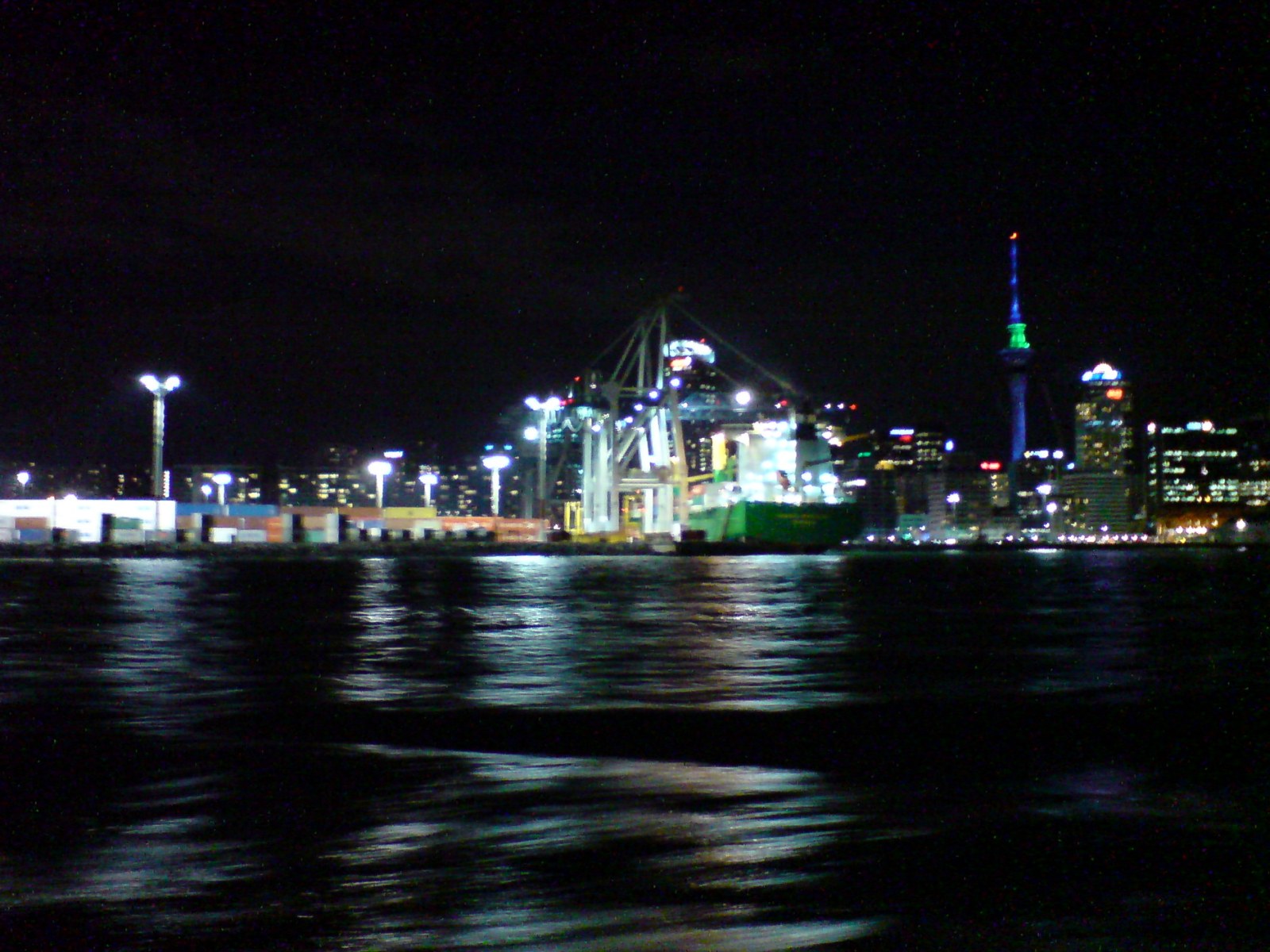
Ports of Auckland
Ports of Auckland Limited (POAL), the successor to the Auckland Harbour Board, is the Auckland Council-owned company administering Auckland's commercial freight and cruise ship harbour facilities. As the company operates all of the associated facilities in the Greater Auckland area (excluding the ferry terminals and local marinas for recreational yachting), this article is about both the current company and the ports of Auckland themselves.
Economic impact[edit]
According to an economic impact assessment, 173,000 jobs in the Auckland Region rely on trade through the ports and the ports affect a third of the local economy.[21] Ports of Auckland is 100% held by the Auckland Council. Annual dividends to Auckland Regional Holdings and its predecessors in the 15 years to 2006 totalled NZ$500 million.[14]
Industrial dispute[edit]
In late 2011, Ports of Auckland became engaged in an industrial dispute with workers represented by the Maritime Union of New Zealand, after negotiations broke down over the expiry of the existing collective contract, and plans by the port to contract out its services to casual workers.[35] The company board cited a Productivity Commission report calling for greater flexibility in the ports industry, and the need to compete with its nearest rival, Port of Tauranga.[36] The International Transport Workers Federation (ITF) and International Longshore and Warehouse Union (ILWU)[37] later became involved, warning that Ports of Auckland could be declared the world's first 'port of convenience'.[38] Port workers in other parts of the country briefly downed tools in support of the striking Auckland workers, before being ordered to get back to work.[39]
On 7 March 2012, the Port announced that all striking dock workers would be made redundant.[40] This prompted a strong response from the striking port workers, the Maritime Union of New Zealand, and its global affiliates in the ITF, ILWU[41] and Maritime Union of Australia.[42]
The ITF's president, Paddy Crumlin, subsequently declared Ports of Auckland a port-of-convenience on 9 March.[43]
A protest march down Auckland's Queen Street was staged on 10 March, with turnout estimated between 2,000 and 5,000.[44][45][46][47][48]
In response, the Port issued a full-page letter in The Sunday Star-Times, arguing that the port workers earned on average $91,000 for a 26-hour working week.[49][50] These figures have been disputed by the Maritime Union of New Zealand, which accused the Port of having casualisation plans all along, and twisting its own figures in order to discredit the union.[51][52]
Auckland Mayor Len Brown refused to take sides in the dispute, garnering criticism from supporters,[53][54] but offered to mediate in the dispute.[49] In December 2012, the Port was fined NZD$40,000 by the Employment Relations Authority for deliberately employing strikebreakers during the dispute.[55]
In late 2013, it was reported that the dispute remained unresolved.[56] However, a new collective settlement was finally reached in February 2015.[57]
SeePort open weekend[edit]
Ports of Auckland hold its annual open weekend, called SeePort, on Auckland Anniversary Weekends to showcase the public its ports and the history of Auckland's shipping industry and Auckland's maritime heritage.[58]